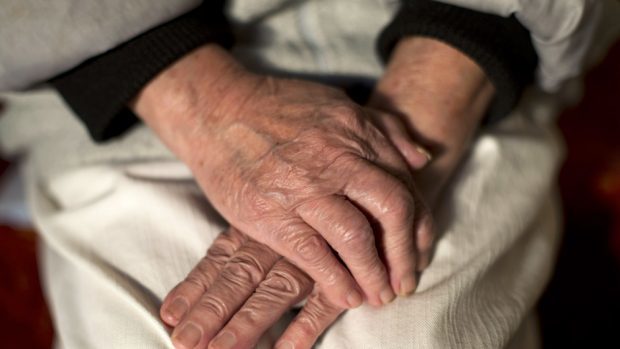Health boards in the north of Scotland are falling behind when it comes to offering support to people diagnosed with dementia, it has emerged.
In 2013, the Scottish Government introduced a new dementia strategy which pledged to offer support to all people diagnosed with the disease for a minimum of 12 months by 2015/16.
However, newly-released statistics reveal that in that year, which is the most recently available, both Grampian and Highland health boards missed the target by a considerable distance.
In the north-east just 21% were offered practical and emotional help, with a figure of 33% in the Highlands – the Scottish average is 42%.
The revelation comes just days after a national conference on the disease was held in Aberdeen.
Last night a pensioners’ charity said the figures were concerning given the rapidly increasing number of diagnoses among Scotland’s ageing population.
Brian Sloan, Age Scotland’s chief executive, said: “It’s very disappointing that only one in five people diagnosed with dementia is getting the support they are entitled to in the Grampian region, and only one in three people in the Highlands.
“A diagnosis of dementia can be very frightening, and it’s vital that people have social support and are aware of their rights and treatment options.
“Getting the right support as early as possible can make a huge difference to people’s quality of life. This could include managing their symptoms, assistance with practical things or legal matters, or discussing future care options.
“People living with dementia may also want to find out about local groups or ways to continue the activities they enjoy. They should have someone to turn to with any questions, concerns or worries.”
The number of Scots living with the condition is predicted to rise by 50%, to more than 120,000.
“It’s urgent that the Scottish Government and NHS make this a priority,” Mr Sloan added.
The government’s strategy states its aim is to “deliver expected rates of dementia diagnosis and by 2015/16, all people newly diagnosed with dementia will have a minimum of a year’s worth of post-diagnostic support coordinated by a link
worker, including the building of a person-centred support plan”.
North-east MSP Tom Mason blamed the figures on a wider lack of support from the government.
He said: “Given our ageing population, the number of people with dementia across the UK is expected to rise to one million by 2025.
“This will put significant pressure on local resources. At the moment, it seems that very few areas are coping, but NHS Grampian in particular is struggling.
“It is an issue that cannot be ignored and one that the SNP and Health Secretary Shona Robison need to get a grip on.”
Dave Stewart, Labour’s shadow health secretary and Highlands and Islands MSP, said the issue was one at the forefront of discussions on Holyrood’s health and sports committee.
He added: “It’s extremely important that patients and their family members are given as much support as possible following their diagnosis to allow them to lead as normal a life as possible.”
NHS Grampian said it offered support to everyone diagnosed with the condition but said that it was down to the individual choice of the patient and their families.
And NHS Highland confirmed everyone who was diagnosed with dementia was referred for support and said it was “working to understand” the disparity between the number of patients and those offered help.
